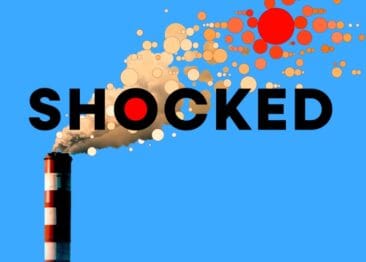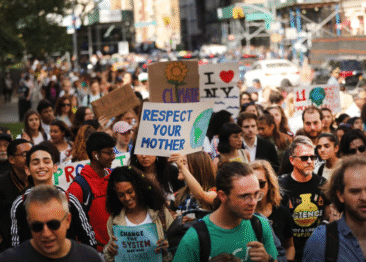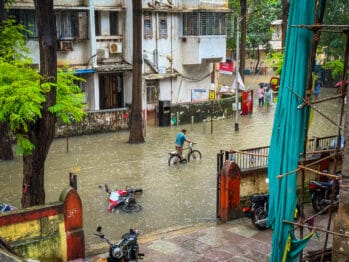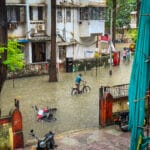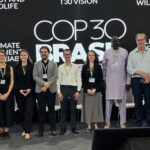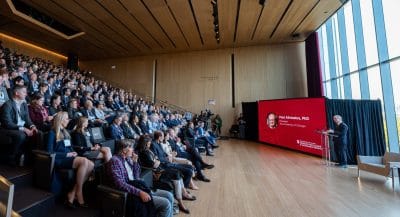Environmental Frontiers
Environmental Frontiers supports teams of undergraduate research assistants charged with analyzing campus data, operational systems, and community behaviors to identify actionable recommendations that advance the University’s sustainability goals. All projects are aligned with the University’s sustainability plan, and are mentored by faculty and Facilities Services staff. By using UChicago’s campus as a case study, students are challenged to think deeply about what the data suggests are effective interventions to improve environmental efficiency and reduce consumption.
EF Campus hires Graduate and Undergraduate Research Assistants throughout the year. Applications are currently closed; check back soon to apply to our next cohort.
Current Projects
Shut the Sash
EFCampus helps run the “Shut the Sash” competition at the University of Chicago, encouraging lab users to minimize fume hood sash height to reduce energy consumption, promoting sustainability and fostering a culture of energy conservation through biannual feedback and rewards. The effort has resulted in significant reduction in energy use at campus lab buildings, which are the highest source of climate emissions on-campus.
Freezer Challenge
The goal of the Freezer Challenge is to enhance lab cold storage efficiency on campus by implementing better practices, such as regular defrosting and sample management, to significantly reduce energy consumption and promote sustainability across the campus.
Lab Standard Operating Procedure
Research laboratories at the University of Chicago consume substantial energy, leading to high costs and sustainability challenges. The aim of this project is to study and utilize sustainable frameworks like I2SL Smart Labs Toolkit and My Green Labs to enhance lab efficiency and sustainability.
Heat Mapping
The Heat Mapping project seeks to understand urban heat effects by analyzing the relationship between surface and 3-meter temperatures. Working with local high school students, the project will collect, analyze, and map temperature data to create actionable insights for better urban management.
Past Projects
EV Charging Stations
The EV Charging Station project conducted research to determine the best locations for four future charging stations and researched a plan for additional charging stations to accommodate a full EV fleet transition by 2030 at the University.
Laboratory Building Energy Analysis and Design
This Laboratory Building Energy Analysis and Design project evaluated the energy performance of University laboratory buildings and developed tools and behavioral campaigns to reduce excess energy use. Learn more from the project’s Laboratory Building Energy Analysis and Design Final Presentation.
Sustainability Dashboards Analysis and Design
This project evaluated UChicago’s sustainability dashboards on the basis of transparency, digital accessibility, and usability to develop recommendations to improve and expand sustainability dashboards and reporting to advance the University’s sustainability goals. The team collaborated in 2022-2023 with UChicago Dining and Chartwells, the dining hall food supplier, to build a UChicago Dining dashboard analysis to report on the amount of food UChicago is sourcing sustainably accounting for: cage free eggs, Fair Trade/Eco coffee, rhgh-free milk, reduced antibiotic chicken, reduced antibiotic turkey, and sustainable seafood. Learn more from the project’s Sustainability Data Dashboard Report.
Tree Ecosystem Services Analysis
The Tree Ecosystem Services Analysis evaluated methods to quantify the benefits provided by different tree species in an urban forest, and assessed opportunities to optimize ecosystem services to advance the University’s sustainability goals. Learn more from the project’s Campus Forest Analysis.
Water Conservation Assessment
The Water Conservation Assessment project benchmarked current water usage at the University of Chicago, recommending water reduction goals and conservation measures through technological improvements, behavioral methods, and cost-benefit analyses. Learn more from the project’s Water Reduction Report.
Summer 2025 EF Campus Undergraduate Research Assistants
Panchali Choudhary
Panchali Choudhary is an undergraduate student at the University of Chicago majoring in Economics and Computer Science. Prior to this experience, she has worked across data-driven roles, from building full-stack tools to support clinical analytics to conducting market research on healthcare technology and generative AI. On campus, she is a project lead of the Phoenix Sustainability Initiative’s Green Data group and is a member of Eckhart Consulting. Her interests lie at the intersection of energy analytics and sustainable urban development.
“I hope to work in energy in the future, and this opportunity allowed me to apply the skills I’ve learned from the past few years in an environment where I feel personally invested in the work. It was super exciting for me to be able to work with energy data and talk about GHG reductions in relation to improving energy efficiency, so this internship was the stepping stone I needed to continue down this path.”
Will Vanman
Will Vanman is an undergraduate student at the University of Chicago majoring in environment, geography, and urbanization (CEGU) and public policy. He is passionate about environmental policy, climate justice, and sustainable transportation. Will has an existing background in climate and sustainability advocacy, having been involved with Fridays for Future, and is currently involved with the Phoenix Sustainability Initiative and the Undergraduate Student Government’s Committee on Campus Sustainability.
“This internship was my first real experience working with the climate space, and I really enjoyed it, especially the implementation process. It showed me that making progress on climate issues isn’t just about the science or the policy design, but also about the day-to-day work of coordinating people, adapting to obstacles, and keeping momentum. I found that process rewarding and motivating, and confirmed my interest in turning ambitious climate goals into practical outcomes.”















